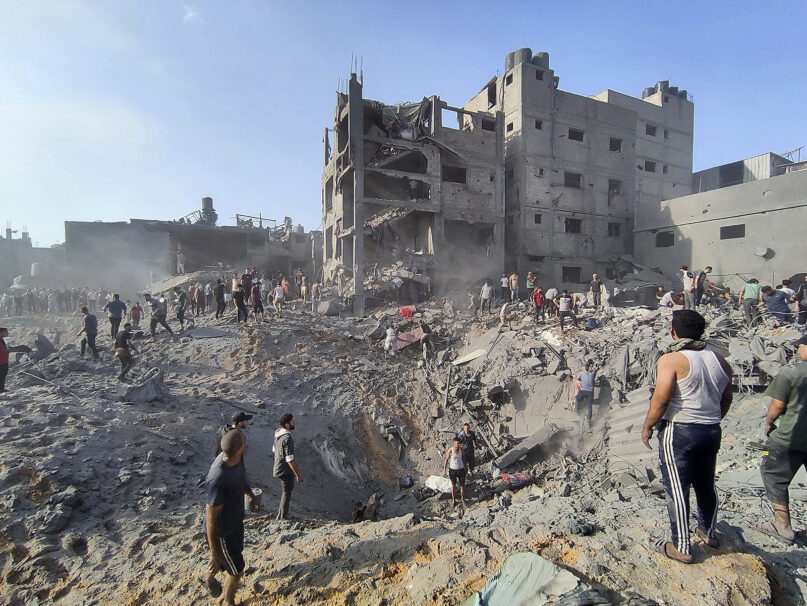(RNS) — When Terry Ahwal, a Palestinian American living near Detroit, Michigan, learned Israel and Hamas had reached a ceasefire deal, a flood of emotions washed over her.
She felt relieved that the 15-month war might end soon but unsure whether the deal would bring long-lasting peace and include solutions to rebuild Gaza.
“I am cautiously optimistic. Any time there is a cessation of violence, it’s a welcome thing, but having lived through too many Israeli ceasefires, I am skeptical, and I’m monitoring with hope,” said Ahwal, who grew up in the West Bank and serves as president of the American Federation of Ramallah Palestine.
Her relatives in Palestine celebrated the news, though they are also waiting to see how the deal will unfold and whether the peace will last. “They are on their edge every step of the way, not knowing what’s going to happen,” she said.
For Palestinian Americans around the country, the news of a ceasefire was bittersweet. After a year and a half of watching their homeland demolished and hearing news of loved ones lost, many consider the deal long overdue. Nationwide, Palestinian communities celebrated the promised truce and release of Palestinians held in Israeli prisons but remain angry that so many Palestinians were killed before an agreement was reached.
The 15-monthlong conflict has claimed the lives of more than 46,000 Palestinians, according to the Gaza Health Ministry and U.N. estimates. Ninety percent of the Gaza population has been displaced, many repeatedly, and faced threats of famine and disease, while the territory’s infrastructure has been decimated.
Announced on Wednesday (Jan. 15), the ceasefire deal supervised by the Biden administration and Qatar is set to come into effect as soon as Sunday. The first phase of the deal will prompt a 42-day pause in the fighting and allow for the release of 33 Israeli hostages held by Hamas, most of them women and children. In exchange, hundreds of Palestinians held in Israeli prisons will be freed. Hundreds of thousands of displaced Gazans will also be allowed to return to what remains of their homes, and humanitarian aid will be re-allowed into the war-ravaged territory. Israel must also pull back its troops closer to the Israel-Gaza border. On Friday, Prime Minister Netanyahu gathered his security cabinet to approve the deal.









